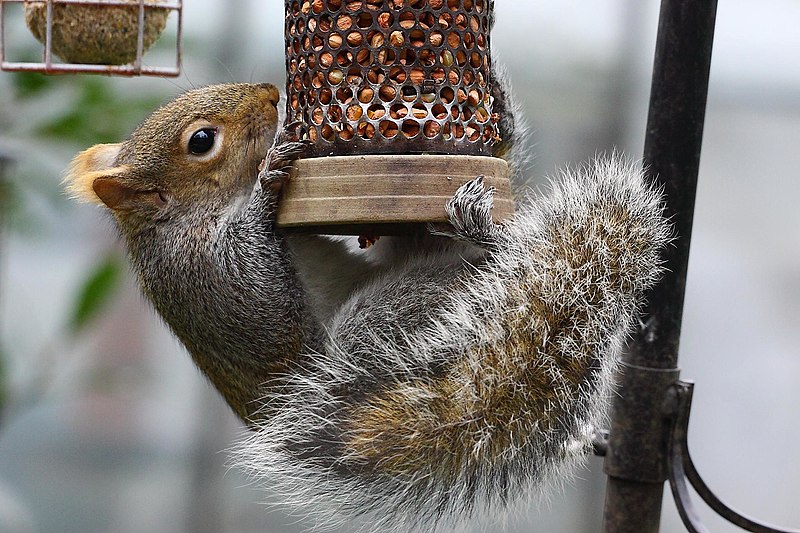Yes, you can relocate squirrels in Texas, but you must first get authorization from the Texas Parks and Wildlife Department before relocating any nuisance squirrels. You’ll also need permission from the owner of the property where the squirrels will be released.
Relocating wildlife, including squirrels, may seem like a humane solution when dealing with infestations, but the legality of this practice varies by state. In Texas, the relocation of squirrels is regulated under specific wildlife laws to protect both the animals and the ecosystem.
While it’s possible to relocate squirrels, there are strict guidelines in place to ensure that this is done safely and responsibly. Understanding the legal requirements is crucial to avoid penalties and ensure compliance with local wildlife regulations.
In this article, we’ll explore the legal aspects of squirrel relocation in Texas and what alternatives exist for dealing with nuisance squirrels.
Texas State Laws on Squirrel Relocation
In Texas, relocating squirrels is legal, but it’s governed by specific rules set by the Texas Parks and Wildlife Department. These regulations are in place to ensure that relocated wildlife doesn’t disrupt the local ecosystem or introduce diseases to new environments. Anyone attempting to relocate squirrels must first obtain a permit from the Texas Parks and Wildlife agency, especially if it involves moving them to public land or outside of city limits. Without this permit, relocating squirrels can result in fines or other legal penalties.
Additionally, Texas law requires that you request permission from the landowner where you’re going to release the nuisance animal. For these reasons, Texas law emphasizes humane treatment throughout the removal and relocation process, encouraging homeowners to consider alternative methods, such as squirrel control strategies like exclusion or working with licensed wildlife control professionals.
Legal Consequences of Unlawful Relocation
Fines and Penalties
Relocating squirrels without following Texas’s wildlife laws can lead to significant legal consequences. Homeowners who attempt to relocate squirrels without the proper permits may face fines, which can range from a few hundred to several thousand dollars, depending on the severity of the violation.
These penalties are enforced to protect wildlife and ensure that relocation is done in a way that minimizes harm to the ecosystem. It’s essential to be aware of the rules and seek guidance from wildlife authorities or professionals before attempting relocation.
Aside from monetary fines, unlawful relocation can also result in other legal actions. In some cases, individuals may be required to attend court hearings or even face misdemeanor charges, depending on the circumstances of the violation.
This not only adds to the stress of dealing with the squirrel issue but can also leave you with a permanent record of wildlife law violations. To avoid these complications, it’s always best to follow the legal process and work with professionals if needed.
Impact on Local Wildlife
Relocating squirrels without consideration of the law doesn’t just carry legal consequences—it can also have negative impacts on local wildlife. Introducing squirrels to a new environment without proper planning can lead to overcrowding, competition for resources, and the spread of diseases.
This can disrupt the balance of the ecosystem and harm both the relocated squirrels and the native wildlife. Texas’s relocation laws are designed to minimize these ecological disruptions and maintain the health of the local environment.
Furthermore, improper relocation can lead to higher mortality rates among relocated squirrels. Without a territory to call their own, they may struggle to find food, water, and shelter, increasing the likelihood of starvation or predation.
This is why Texas wildlife laws emphasize responsible relocation practices and encourage other methods, such as exclusion, to handle nuisance squirrels more effectively. Working within the law ensures that both the squirrels and the environment are protected.
Euthanasia and Legal Alternatives
In Texas, when relocation isn’t a viable option, euthanasia is often considered the legal and humane alternative for dealing with nuisance squirrels. Wildlife control professionals are typically responsible for carrying out euthanasia following strict guidelines set by the Texas Parks and Wildlife Department. The goal is to ensure that the process is quick and minimizes suffering, as required by state law. Although this may seem like a harsh solution, it’s sometimes necessary to prevent further ecological issues or property damage.
That said, many homeowners may find the idea of euthanizing squirrels uncomfortable and seek alternatives. One legal alternative is exclusion, where professionals seal entry points and make your home or property inaccessible to squirrels. This method allows squirrels to leave the property without being harmed and prevents them from returning. Exclusion is an effective long-term solution that avoids the need for euthanasia, as it focuses on preventing the problem rather than removing it.
Another alternative is working with licensed wildlife rehabilitators, who may offer solutions that don’t involve euthanasia or relocation. These professionals are trained in handling wildlife safely and may have the resources to manage squirrel populations without causing harm. In any case, it’s crucial to follow Texas laws and consult with experts to ensure that whichever method is chosen is both humane and legal. By considering all options, homeowners can find a solution that balances their needs with the welfare of local wildlife.
Alternatives to Relocation
When relocation isn’t feasible or legally permissible, there are several effective alternatives that can help manage squirrel infestations without needing to remove the animals entirely. Exclusion is one of the most common alternatives and involves sealing entry points in your home or property to prevent squirrels from entering. This method allows the squirrels to naturally leave while blocking their access back into the space. It’s a humane approach that eliminates the need for relocation while still protecting your property from further damage.
Another alternative is habitat modification, which involves making your property less attractive to squirrels. This can include trimming tree branches that provide access to your roof, removing bird feeders, and cleaning up fallen fruits or nuts that might attract them. By reducing food sources and shelter opportunities, you can discourage squirrels from staying in the area. Habitat modification is a long-term solution that works by addressing the root cause of the infestation—squirrels are less likely to stay where they don’t have easy access to food or shelter.
Homeowners can also explore the use of natural deterrents to drive squirrels away. Scents that squirrels dislike, such as peppermint oil, garlic, or predator urine, can be used to create an environment that squirrels find unwelcoming. While these methods may not permanently eliminate the issue, they are a useful part of a comprehensive squirrel control strategy. By combining exclusion, habitat modification, and deterrents, you can effectively manage squirrel infestations without the need for relocation or more drastic measures.
Conclusion and Professional Help
Dealing with squirrels on your property can be a challenging and time-consuming task, especially with legal restrictions on relocation in Texas. Instead of attempting relocation, exploring alternatives like exclusion, habitat modification, and natural deterrents can offer effective, humane solutions. However, in many cases, it’s best to consult professionals who are experienced in wildlife removal and understand the local laws to ensure the problem is handled legally and responsibly. This not only helps protect your property but also ensures that the squirrels are treated humanely.
At AAAC Wildlife Removal Dallas, we specialize in providing expert squirrel removal services that comply with Texas state regulations. Our team is trained in safe, humane methods to manage squirrel infestations, whether through exclusion, habitat modification, or other legal alternatives. We handle everything from inspection to repair, ensuring that your home is secure and that the squirrels won’t return. If you’re facing a squirrel problem and need a professional solution, contact AAAC Wildlife Removal Dallas for comprehensive, legal, and effective assistance.





